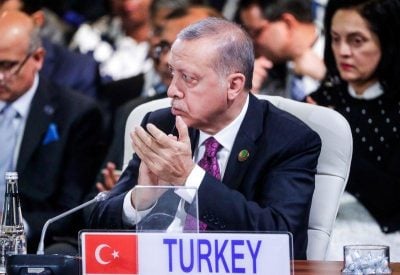BRICST: Turkey Wants to Join BRICS, Weighing The Pros And Cons
How real are the chances that Turkey joins the club?

The Turkish President’s proposal for including his country in BRICS sounds very promising but might end up being a challenge to implement, though one should ask if it ultimately matters whether it joins the bloc or not.
The Turkish President sent tongues wagging all across the world last week when he proposed including his country in BRICS. Erdogan was invited to attend the organization’s 10th summit in the South African city of Johannesburg as part of the BRICS+ initiative that seeks to broaden BRICS’ international partnerships with the most promising countries. Valdai Club expert and visionary thinker Yaroslav Lissovolik has written extensively about the various forms that this could take, but Turkey apparently wants to go one step further and join the bloc as an official member instead of cooperate with it in the BRICS+ capacity.
As expected, Erodgan’s idea has generated a lot of attention in the think tank and other policymaking spheres, and he himself said that the group’s five members reacted very positively to his suggestion. As with all major developments of this kind, arguments can be made in support of this initiative and against it, but unlike most binary choices, a third “middle ground” way is possible given the specific circumstances of what’s being proposed and the global context in which it’s occurring. This creative “solution” (if it can be called that) will be discussed at the end of this article, while the first two parts will deal with the three most important points in support of each possibility.
The most attractive appeal that BRICS membership appears to have for Turkey’s many worldwide proponents is that it would strongly symbolize the country’s strategic shift to the East, the importance of which can’t be understated during the current tensions that it’s experiencing with the West. In addition, Turkey would be the first Muslim-majority country to join the organization, and this carries with it an even deeper symbolism pertaining to the “brand’s” inclusiveness. It should go without saying that Turkey would also frame this as confirming its rising role in the international Islamic community. Lastly, BRICS membership would give the country access to its financial and other integrational resources.
On the other side of the coin, one could argue that BRICS is already overextended and under-integrated as it is, and that Turkey’s prospective membership might only contribute to these challenges and make them much more difficult to surmount. Another problem, pointed out by geopolitical expert Adam Garrie, is that India might not allow the bloc to expand because of its fear that neighboring rival Pakistan would naturally be included in this framework sometime in the future on the grounds that China’s top Silk Road project transits through its territory. Finally, the case can be made that Turkey’s dialogue partner status with the SCO and inclusion in the G20 make BRICS membership redundant to a large degree.
It’s precisely that redundancy, however, which forms the basis for the third-way “solution”, which is to reconceptualize BRICS as just another of several of multipolar organizations, all of which overlap in certain spheres. This allows one to appreciate the consultative security benefits that Turkey derives from its dialogue partner relationship with the SCO and the economic coordination that it’s already carrying out with its fellow G20 partners. Looked at in this way, BRICS doesn’t necessarily provide anything altogether different in a substantial sense from what Turkey is already receiving from other organizations, and it hasn’t been explained how full-scale membership would qualitatively differ from its BRICS+ arrangement with the group.
There are distinct soft power advantages that were mentioned earlier, but formally joining the bloc might overextend it and hamper its integrational efficiency, like was also argued. Instead, if BRICS is seen as part of the larger multipolar framework that also includes the SCO, G20, and the Silk Road – all of which Turkey is presently participating in to one extent or another – then the importance of formally joining that specific organization as one of its primary members wanes and is reframed in its proper perspective as providing more of a soft power boost than anything else. Furthermore, the possibility emerges for all of the aforesaid to gradually integrate with one another into a larger multipolar whole.
The membership overlap between the previously mentioned organizations, coupled with the existing cooperation between them on the bilateral and multilateral levels, testifies to the shift of global gravity from West to East and hints at the future creation of an alternative world order that “balances” and then eventually replaces the US-centric one inherited from the end of the Old Cold War. It’s this scenario that drives Turkey’s interest to join BRICS because its leadership believes the group to be one of the main forces reshaping the international order, and while true in many ways, it’s also somewhat of an exaggeration because of the bloc’s internal differences that have hitherto hindered its collective effectiveness.
It’s difficult to predict whether Turkey will ultimately be successful in joining BRICS as a full-fledged member or not, and as was written, there are convincing arguments one way or another for each scenario, but the point that shouldn’t be overlooked is that the issue is actually somewhat moot because the country is already a powerful force changing global affairs irrespective of this fact potentially being formalized through its admission to BRICS. The prevailing trend of multipolarity will continue to unfold independently of this possibility, and Turkey will still remain one of the handful of countries leading the way in pioneering the Silk Road Century and especially its Mideast component.
This article was first published by InfoRus

